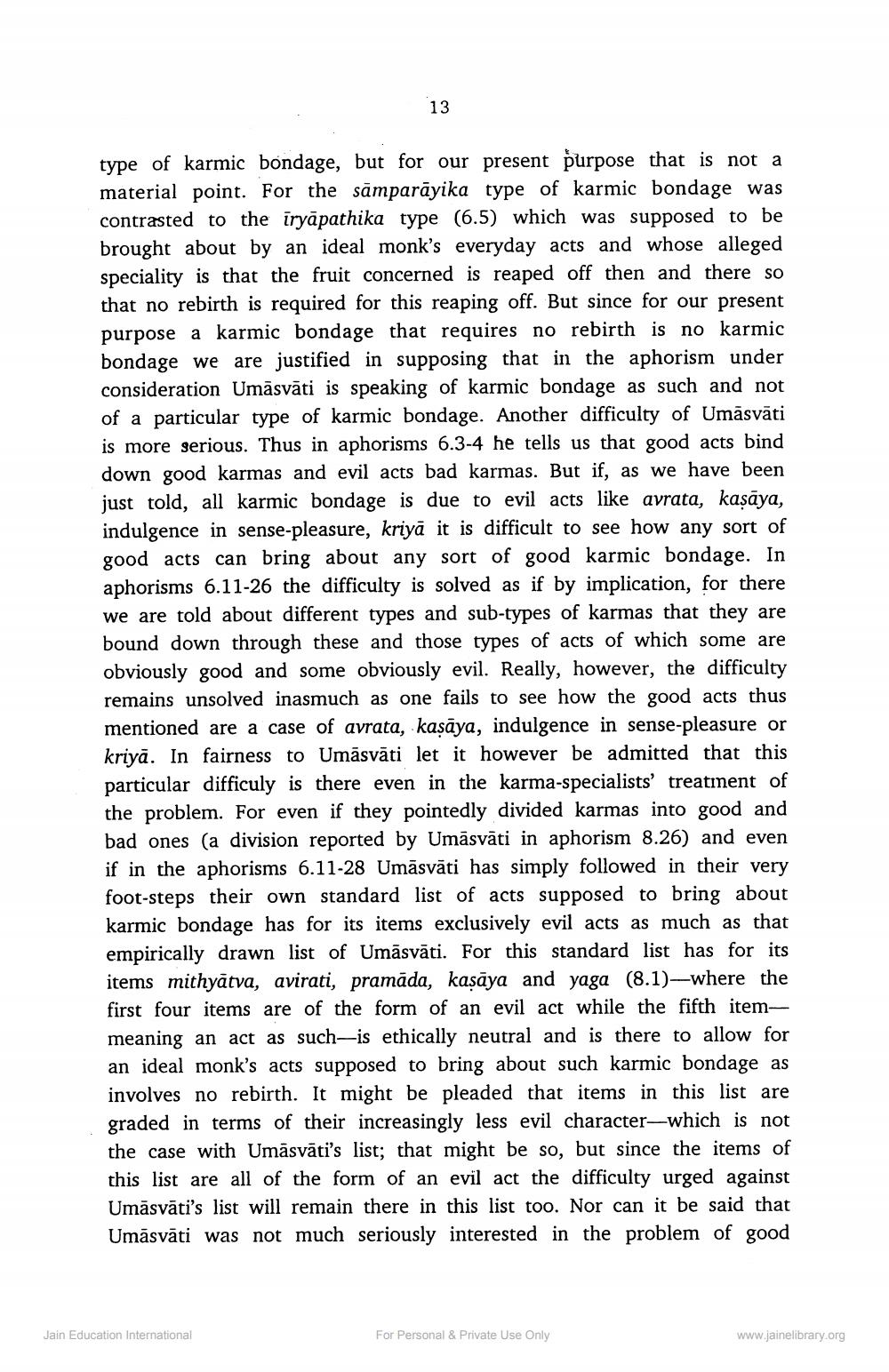________________
13
type of karmic bondage, but for our present purpose that is not a material point. For the samparāyika type of karmic bondage was contrasted to the īryāpathika type (6.5) which was supposed to be brought about by an ideal monk's everyday acts and whose alleged speciality is that the fruit concerned is reaped off then and there so that no rebirth is required for this reaping off. But since for our present purpose a karmic bondage that requires no rebirth is no karmic bondage we are justified in supposing that in the aphorism under consideration Umāsvāti is speaking of karmic bondage as such and not of a particular type of karmic bondage. Another difficulty of Umāsvāti is more serious. Thus in aphorisms 6.3-4 he tells us that good acts bind down good karmas and evil acts bad karmas. But if, as we have been just told, all karmic bondage is due to evil acts like avrata, kasāya, indulgence in sense-pleasure, kriyā it is difficult to see how any sort of good acts can bring about any sort of good karmic bondage. In aphorisms 6.11-26 the difficulty is solved as if by implication, for there we are told about different types and sub-types of karmas that they are bound down through these and those types of acts of which some are obviously good and some obviously evil. Really, however, the difficulty remains unsolved inasmuch as one fails to see how the good acts thus mentioned are a case of avrata, kasāya, indulgence in sense-pleasure or kriyā. In fairness to Umāsvāti let it however be admitted that this particular difficuly is there even in the karma-specialists' treatment of the problem. For even if they pointedly divided karmas into good and bad ones (a division reported by Umāsvāti in aphorism 8.26) and even if in the aphorisms 6.11-28 Umāsvāti has simply followed in their very foot-steps their own standard list of acts supposed to bring about karmic bondage has for its items exclusively evil acts as much as that empirically drawn list of Umāsvāti. For this standard list has for its items mithyātva, avirati, pramāda, kasāya and yaga (8.1)—where the first four items are of the form of an evil act while the fifth itemmeaning an act as such-is ethically neutral and is there to allow for an ideal monk's acts supposed to bring about such karmic bondage as involves no rebirth. It might be pleaded that items in this list are graded in terms of their increasingly less evil character—which is not the case with Umāsvāti's list; that might be so, but since the items of this list are all of the form of an evil act the difficulty urged against Umāsvāti's list will remain there in this list too. Nor can it be said that Umāsvāti was not much seriously interested in the problem of good
Jain Education International
For Personal & Private Use Only
www.jainelibrary.org




